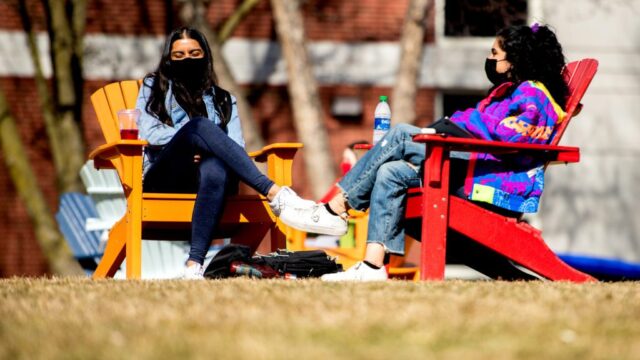Experiential Academics

The combination of academic excellence and experiential learning is what distinguishes an education at the College of Social Sciences and Humanities from any other liberal arts education. You can explore different career paths, academic interests, and global challenges by adapting to different settings, asking new questions, and applying your problem-solving and critical-thinking skills. By integrating experiential education into your coursework, you can explore new possibilities, achieve long-term educational and career goals, and prepare yourself for a lifetime of success.
-
1.
Co-op. In the College of Social Sciences and Humanities, cooperative education—or co-op for short—is a key component to the Experiential Liberal Arts, an educational model that integrates experiential learning with the rigorous study of society, culture, and politics. Students majoring in philosophy and religious studies have a variety of interests and a corresponding variety of co-op opportunities available to them.
Co-op![]()
-
2.
Academic Advising. Academic advising is an ongoing process that engages students in educational planning consistent with their academic interests as well as with their personal, intellectual, and career goals. Located in 180 Renaissance Park, the Office of Student Academic Affairs is a central place where undergraduate students in the College of Social Sciences and Humanities can go with all academic questions. This office is a good first place to go for any kind of academic concern. Academic advisors provide general guidance on academic matters and assist students in their progress from orientation through graduation. For more information please contact, Alain Akasa.
Academic Advising![]()
-
3.
PPE Club. The Northeastern University PPE Club is an active group of students who meet weekly on Thursdays at 7 PM to share dinner and discussion. The club’s goal is to build community among ppe majors as well as students from outside the department. In the past, the group have discussed topics in philosophy of science, metaphysics, ethics, and popular culture.
Contact PPE Club![rich results on google's SERP when searching for 'politics philosophy and economics']()
-
4.
Service Learning. As an urban university, service-learning is part of Northeastern’s ethical mission. But more than good works, service-learning at Northeastern is an academically rigorous experience. Through partnerships with schools, neighborhood agencies, health clinics, and nonprofit organizations, the university embeds service into academic coursework. Students engage in hands-on service to address community needs, learning by applying course concepts to their experiences, and reflecting on those experiences back in the classroom.
Service Learning![]()
-
5.
Student Pathways. People often ask how experiential education works in Politics, Philosophy, and Economics (PPE). These pathways shows the unique ways in which the experiential liberal arts have shaped their studies and perspectives.
Student Pathways![]()




